Parents of newborns and infants are often faced with the challenge of soothing their little ones during bouts of colic and gas. Gripe water and gas drops are two commonly used remedies that can provide relief, but many parents wonder if it is safe to give them together.
Gripe water and gas drops work in different ways to alleviate colic and gas symptoms. Can You Give Gripe Water and Gas Drops Together? Gripe water is a herbal supplement that contains a combination of ingredients, including fennel, ginger, and chamomile, which are believed to help soothe the digestive system and reduce colic symptoms.
Gas drops, on the other hand, contain simethicone, which is an anti-foaming agent that helps break up gas bubbles in the stomach and intestines, making it easier for babies to pass gas.
While both gripe water and gas drops can be effective in providing relief for colic and gas symptoms, it is generally not recommended to give them together. Mixing the two remedies can dilute their effectiveness and increase the risk of side effects.
It is important to consult with a healthcare professional before giving any over-the-counter remedies to your baby.
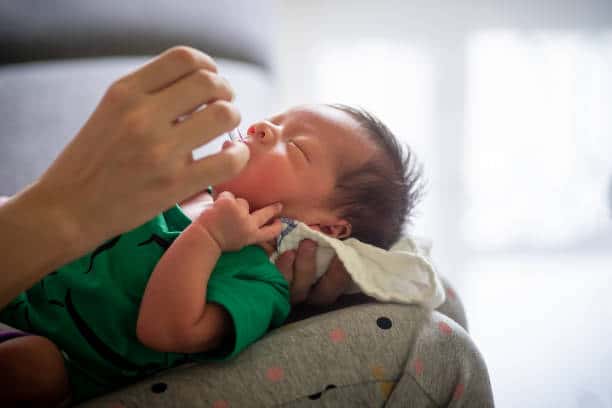
Key Takeaways
- Gripe water and gas drops are two commonly used remedies for colic and gas relief.
- Gripe water contains herbal ingredients while gas drops contain simethicone.
- It is generally not recommended to give gripe water and gas drops together as it can dilute their effectiveness and increase the risk of side effects. Consult with a healthcare professional before giving any over-the-counter remedies to your baby.
1. Understanding Gripe Water and Gas Drops
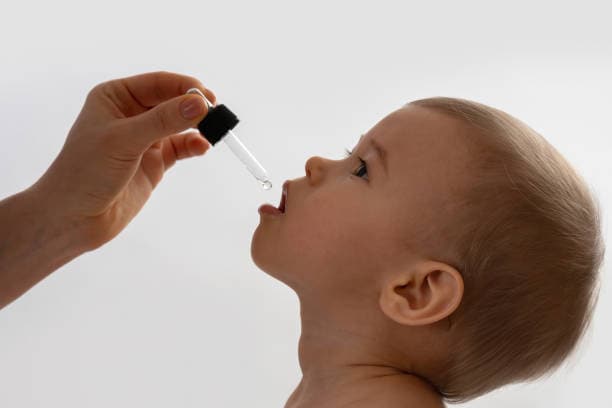
Gripe water and gas drops are two commonly used remedies for infants with colic, gas, and other gastrointestinal discomforts. They are both designed to help soothe the baby’s stomach and relieve symptoms such as bloating, gas, and fussiness.
However, parents often wonder if it is safe to give both gripe water and gas drops together.
Gripe water is a natural herbal remedy that has been used for centuries to treat digestive issues in infants. It typically contains a combination of herbs such as dill, fennel, and ginger, which are believed to have calming and soothing effects on the stomach.
Some gripe water brands also include simethicone and sodium bicarbonate, which are known to help break down gas bubbles and reduce bloating.
Gas drops, on the other hand, are a medication that contains simethicone, a substance that helps break up gas bubbles in the stomach. They are often recommended by pediatricians for infants with colic and gas-related discomforts.
While both gripe water and gas drops are designed to alleviate similar symptoms, they work differently and contain different ingredients. Therefore, it is generally safe to give them together.
However, it is important to follow the recommended dosage for each product and consult with a pediatrician before giving any medication or supplement to an infant.
Parents should also be aware that not all gripe water and gas drops brands are created equal. Some may contain additional ingredients or have different concentrations, which can affect their efficacy and safety.
Therefore, it is important to read the labels carefully and choose a reputable brand that has been tested for safety and efficacy.
In summary, gripe water and gas drops are both safe and effective remedies for infant colic and gas-related discomforts. While it is generally safe to give them together, parents should follow the recommended dosage and consult with a pediatrician before giving any medication or supplement to an infant.
2. The Role of Gripe Water and Gas Drops in Colic Relief
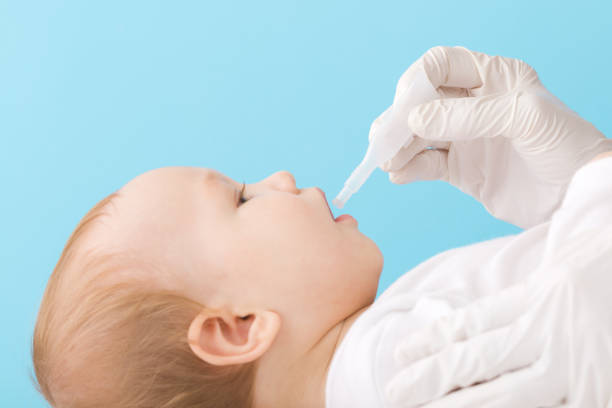
Colic is a common problem in infants, which can cause inconsolable crying and fussiness. Parents often turn to gripe water and gas drops to provide relief from colic symptoms.
Gripe water is a traditional remedy that has been used for centuries to soothe colicky babies. It contains a combination of herbs and other natural ingredients that are thought to help relieve gas bubbles and provide relief from colic symptoms.
Gas drops, on the other hand, are a more modern remedy that contains simethicone, an ingredient that helps break up gas bubbles in the stomach.
Both gripe water and gas drops can be effective in providing relief from colic symptoms. However, it is important to note that they work in different ways.
Gripe water is thought to work by relaxing the muscles in the digestive tract, while gas drops work by breaking up gas bubbles in the stomach.
It is generally safe to use gripe water and gas drops together, as they have different mechanisms of action. However, it is important to follow the recommended dosage for each product, and to consult with a healthcare provider before giving any new medication or supplement to an infant.
In summary, gripe water and gas drops can both be effective in providing relief from colic symptoms. While they work in different ways, they can be used together safely.
It is important to follow recommended dosages and consult with a healthcare provider before giving any new medication or supplement to an infant.
3. Feeding and Digestion Related to Gas Problems
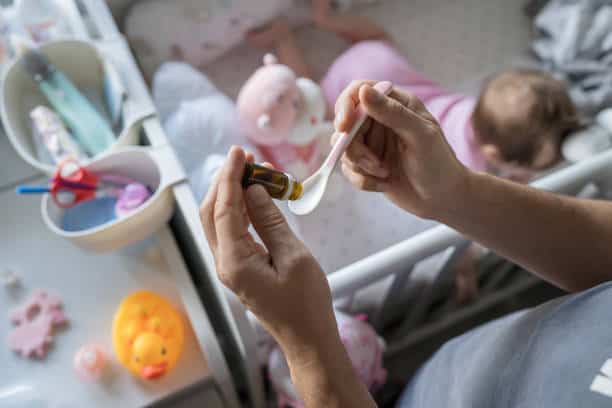
Feeding plays a crucial role in the digestion process, and any issues related to it can lead to gas problems. Breast milk and formula are the primary sources of nutrition for infants, and both can cause gas.
However, breast milk is easier to digest and less likely to cause gas than formula.
Bottle-fed babies are more prone to gas problems than breastfed babies because they tend to swallow more air while feeding. Therefore, it is essential to ensure that the baby is positioned correctly while feeding and burped frequently to release any trapped air.
Certain foods and beverages consumed by the mother can also cause gas in breastfed babies. Caffeine, dairy, and chamomile are known to cause gas in some babies.
Therefore, it is recommended that mothers avoid consuming these foods and drinks while breastfeeding.
Gas drops and gripe water are two commonly used remedies for gas problems in babies. Gas drops contain simethicone, which breaks up gas bubbles in the stomach, making them easier to pass.
Gripe water contains a combination of herbs and is believed to soothe the digestive system, reducing gas and colic symptoms.
While both gas drops and gripe water are effective in relieving gas problems, they should not be given together unless recommended by a healthcare professional. Combining the two can lead to an overdose of simethicone, which can cause diarrhea and other side effects.
In conclusion, feeding and digestion play a crucial role in gas problems in babies. Proper feeding techniques, including correct positioning and frequent burping, can help prevent gas problems.
Gas drops and gripe water are effective remedies for gas problems, but they should not be given together without medical advice.
4. Safety and Side Effects of Gripe Water and Gas Drops
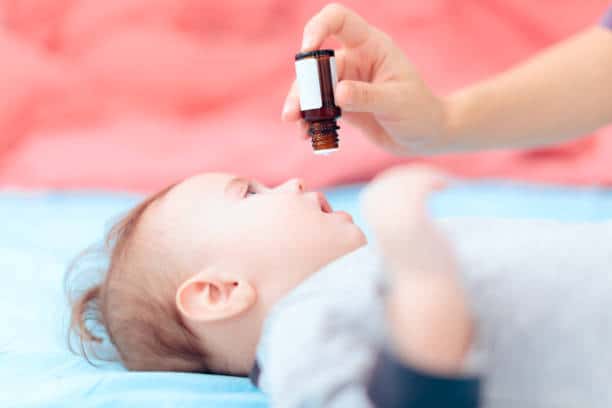
Gripe water and gas drops are commonly used over-the-counter remedies for colic, gas, and other digestive issues in infants and young children. While they are generally considered safe, there are some potential side effects and safety concerns to be aware of.
One of the primary concerns with gripe water is its alcohol content. Some gripe water products contain up to 9% alcohol, which can be harmful to infants and young children.
The American Academy of Pediatrics recommends avoiding gripe water that contains alcohol, and the Food and Drug Administration (FDA) has issued warnings about the potential risks of using alcohol-containing gripe water.
Gas drops, on the other hand, are typically alcohol-free and considered safe for infants and young children. However, like any medication, they can still cause side effects in some individuals.
Common side effects of gas drops include vomiting, diarrhea, and allergic reactions such as hives or difficulty breathing.
If your child experiences any side effects or adverse reactions after taking gripe water or gas drops, it is important to contact your doctor or pediatrician right away. They can help determine if the symptoms are related to the medication and provide guidance on next steps.
Overall, while gripe water and gas drops can be helpful in relieving colic and other digestive issues in infants and young children, it is important to use them safely and under the guidance of a healthcare provider.
5. Additional Methods for Soothing a Gassy Baby
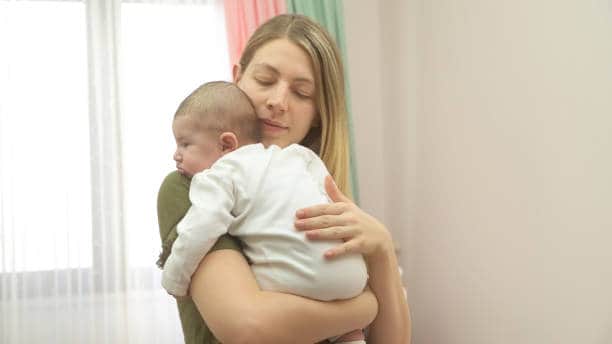
Aside from using gripe water and gas drops, there are several other methods parents can try to soothe their gassy baby. Here are some additional techniques that may help:
Rocking and Motion
Rocking or gently bouncing the baby can help to calm them down and also aid in releasing gas. Parents can try using a baby swing or a rocking chair to create a soothing motion for the baby.
White Noise and Sound
White noise, such as a fan or a sound machine, can help to create a calming atmosphere for the baby. Soft music or lullabies can also help to soothe the baby and distract them from their discomfort.
Massage
Massaging the baby’s tummy in a clockwise motion can help to relieve gas and aid in digestion. Parents can also try gently moving the baby’s legs in a bicycle motion to help release gas.
Swaddling
Wrapping the baby snugly in a swaddle can help to create a sense of security and comfort for the baby. Swaddling can also help to prevent the baby from moving around too much and ingesting air.
Pacifier
Offering a pacifier can help to calm the baby and provide a distraction from their discomfort. Sucking on a pacifier can also help to release gas.
Walking
Taking the baby for a walk in a stroller or baby carrier can help to create a calming motion and aid in releasing gas. Walking can also help to distract the baby from their discomfort.
Cool, Dry Place
Keeping the baby in a cool, dry place can help to prevent excessive sweating and discomfort. Overheating can lead to increased fussiness and discomfort for the baby.
Overall, there are several methods parents can try to soothe their gassy baby. It may take some trial and error to find the right technique for their baby, but with patience and persistence, parents can help their baby feel more comfortable and at ease.
6. Understanding and Managing Allergens and Irritants
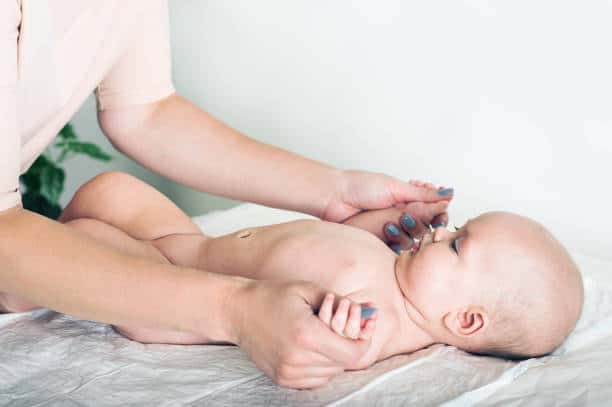
When it comes to managing colic and other digestive issues in infants, parents often turn to gripe water and gas drops as a solution. However, it is important to understand the potential allergens and irritants that can be found in these products and how they may affect your baby.
Gripe water is a traditional remedy that has been used for centuries to soothe colicky babies. It typically contains a combination of herbs and other natural ingredients, such as ginger, fennel, and chamomile.
While gripe water can be effective in relieving gas and other digestive issues, it is important to be aware of potential allergens and irritants that may be present in some formulations.
Gas drops, on the other hand, are designed specifically to relieve gas and bloating in infants. They typically contain simethicone, which helps to break up gas bubbles in the stomach.
While gas drops are generally considered safe and effective, it is important to be aware of potential allergens and irritants that may be present in some formulations.
When choosing gripe water or gas drops for your baby, it is important to read the label carefully and look for any potential allergens or irritants. Some common allergens and irritants that may be found in these products include:
- Artificial colors and flavors
- Soy
- Gluten
- Dairy
- Nuts
If your baby has a known allergy or sensitivity to any of these ingredients, it is best to avoid products that contain them. Additionally, if your baby experiences any adverse reactions after taking gripe water or gas drops, such as a rash or difficulty breathing, seek medical attention immediately.
In addition to potential allergens and irritants, it is important to consider other factors that may contribute to colic and other digestive issues in infants. These may include:
- Constipation
- Temperature (too hot or too cold)
- Overfeeding
- Underfeeding
- Improper feeding position
By understanding and managing these factors, parents can help alleviate colic and other digestive issues in their infants and promote overall health and well-being.
7. Proper Usage and Dosing Instructions
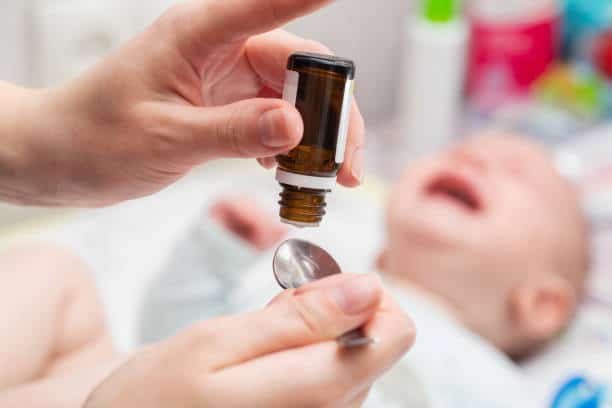
When it comes to treating tummy troubles in infants, many parents wonder if they can give gripe water and gas drops together. While both products are designed to alleviate gas and other digestive issues, it’s important to use them correctly to avoid any potential complications.
First and foremost, it’s important to follow the dosing instructions on the packaging of each product. Gripe water and gas drops may have different dosages and frequency of use, so be sure to read the labels carefully before administering them.
When giving gripe water and gas drops, it’s recommended to use a syringe or dropper to measure out the correct amount. This ensures that the baby receives the proper dosage and avoids any accidental overdoses.
It’s also important to note that gripe water and gas drops should not be given to a baby who is not fed. Make sure the baby has recently eaten before administering either product.
If your baby is already taking a liquid supplement, it’s important to check with a pediatrician before giving them gripe water or gas drops. Some liquid supplements may contain anti-foaming agents that can interact with these products.
Lastly, if your baby is experiencing severe tummy troubles or difficulty breathing, seek medical attention immediately. Gripe water and gas drops are not a substitute for oxygen or other medical treatments.
In summary, while gripe water and gas drops can be effective in relieving gas and other digestive issues in infants, it’s important to use them correctly and follow dosing instructions. Always consult with a pediatrician if you have any concerns about your baby’s digestive tract or if they are experiencing persistent itchiness or discomfort.
8. When to Consult a Healthcare Professional
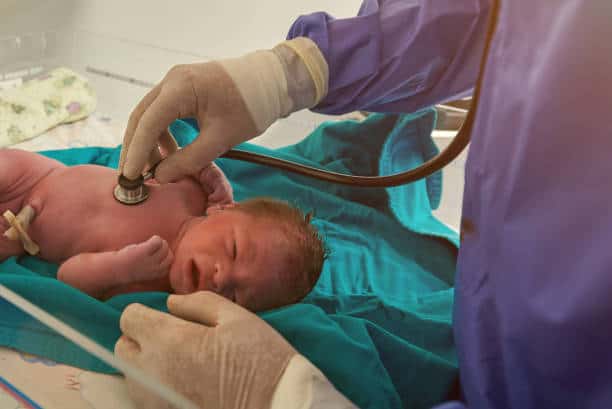
While gripe water and gas drops are generally considered safe, it is important to know when to consult a healthcare professional. If a baby is experiencing severe stomach discomfort, fussiness, or other symptoms, it may be a sign of a more serious condition that requires medical attention.
Pediatricians are the most qualified healthcare professionals to consult for advice on the use of gripe water and gas drops. They can offer guidance on the appropriate dosage and frequency of use, as well as any potential side effects or interactions with other medications.
If a baby falls or experiences any other type of injury while taking gripe water or gas drops, it is important to seek medical attention immediately. Similarly, if a friend or family member has concerns about the baby’s health or the use of these products, it may be helpful to consult a healthcare professional for advice.
While gripe water and gas drops can be effective for relieving symptoms such as teething pain, hiccups, and gas, they should not be used as a substitute for medical care. If a baby is experiencing persistent or severe symptoms, it is important to seek medical attention to determine the underlying cause of the problem.
It is also important to note that some babies may be sensitive to certain ingredients in gripe water or gas drops, such as peppermint. Breastfeeding mothers should be aware of any potential side effects that may be passed on to their babies through breast milk.
In summary, while gripe water and gas drops can be effective for relieving symptoms of stomach discomfort and fussiness, it is important to consult a healthcare professional when necessary. Pediatricians are the most qualified healthcare professionals to provide guidance on the use of these products, and should be consulted if a baby experiences severe symptoms or any other concerns arise.
Related: I Accidentally Gave My Baby Too Much Gas Drops
Frequently Asked Questions
Are Little Remedies gas drops safe for newborns?
Little Remedies gas drops are generally considered safe for newborns. However, it is always best to consult with a healthcare provider before administering any medication to a newborn.
How often can you give gas drops?
The recommended dosage for Little Remedies gas drops is 0.3 ml for infants under 2 years old. They can be given every 2-4 hours as needed, but no more than 12 doses should be given in a 24-hour period.
Do gas drops or gripe water work better?
Both gas drops and gripe water are designed to help relieve symptoms of gas and colic in infants. However, there is no clear evidence to suggest that one is more effective than the other. It may be helpful to try both and see which works best for your baby.
Can you give gas drops before feeding?
Yes, gas drops can be given before or after feeding. It is important to follow the recommended dosage and consult with a healthcare provider if you have any concerns.
How long does gripe water take to work?
The time it takes for gripe water to work can vary depending on the individual baby and the severity of their symptoms. Some babies may experience relief within minutes, while others may take longer.
Are gas drops and gripe water the same?
No, gas drops and gripe water are not the same. Gas drops are specifically designed to help relieve symptoms of gas in infants, while gripe water is a combination of herbs and other ingredients that are thought to help soothe colic and other digestive discomforts.

Iesha is a loving mother of 2 beautiful children. She’s an active parent who enjoys indoor and outdoor adventures with her family. Her mission is to share practical and realistic parenting advice to help the parenting community becoming stronger.
